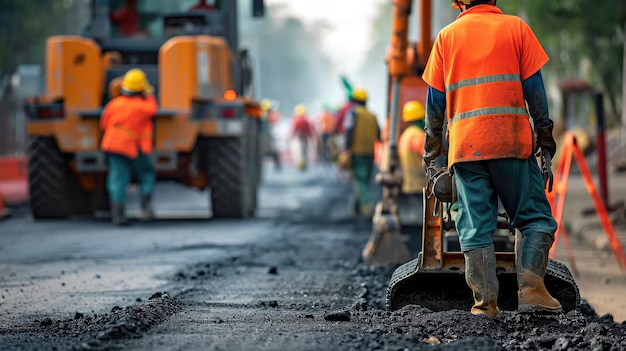India has successfully constructed nearly 40,000 km of rural roads using plastic waste, showcasing a remarkable initiative that highlights the intersection of sustainability and infrastructure development. This innovative approach not only tackles the growing plastic waste crisis but also significantly enhances rural connectivity. By repurposing plastic waste, the project marks a significant milestone in the nation’s quest for sustainable development, paving the way for cleaner environments and improved access to remote areas.
The Secretary of the Department of Drinking Water and Sanitation (DDWS), shared these impressive figures during a recent media interaction. She revealed that out of the total, 13,000 km have been completed in the last two years alone, showcasing a rapid acceleration in this green initiative. This substantial progress reflects the government’s commitment to utilising sustainable methods in infrastructure projects. Beyond road construction, Mahajan noted that over 55% of villages have been declared ‘Open Defecation Free Plus Model’ (ODF Plus Model). This achievement signifies a transformative change in sanitation practices across rural India. The government has also deployed 500,000 waste collection vehicles, further enhancing its capabilities in waste management, particularly in the realms of greywater and plastic waste.
The Pradhan Mantri Gram Sadak Yojana, which facilitates this eco-friendly road-building strategy, serves as a testament to the potential of collective action. Mahajan emphasised the importance of collaboration among various Central ministries, states, and Union Territories (UTs) under the ‘Swachhata Hi Seva-2024’ campaign. This collective endeavour underscores a shared vision of cleanliness that unites communities, from local leaders to citizens. The implications of this initiative are profound. By converting plastic waste into useful infrastructure, India not only mitigates environmental pollution but also creates a tangible legacy for future generations. Cleanliness and sanitation are not merely targets; they represent a continual journey towards improved public health and quality of life.
Mahajan passionately articulated that this mission transcends statistics and figures—it is about fostering a cultural shift. Behaviour change is at the heart of these initiatives, inviting every citizen to take ownership of their environment. In a country where over 1.3 billion people share the responsibility of cleanliness, the journey toward a sustainable future becomes a collective aspiration. As India strides forward in this transformative journey, the message is clear: sustainability is not just a choice; it is an obligation towards both the planet and future generations.




